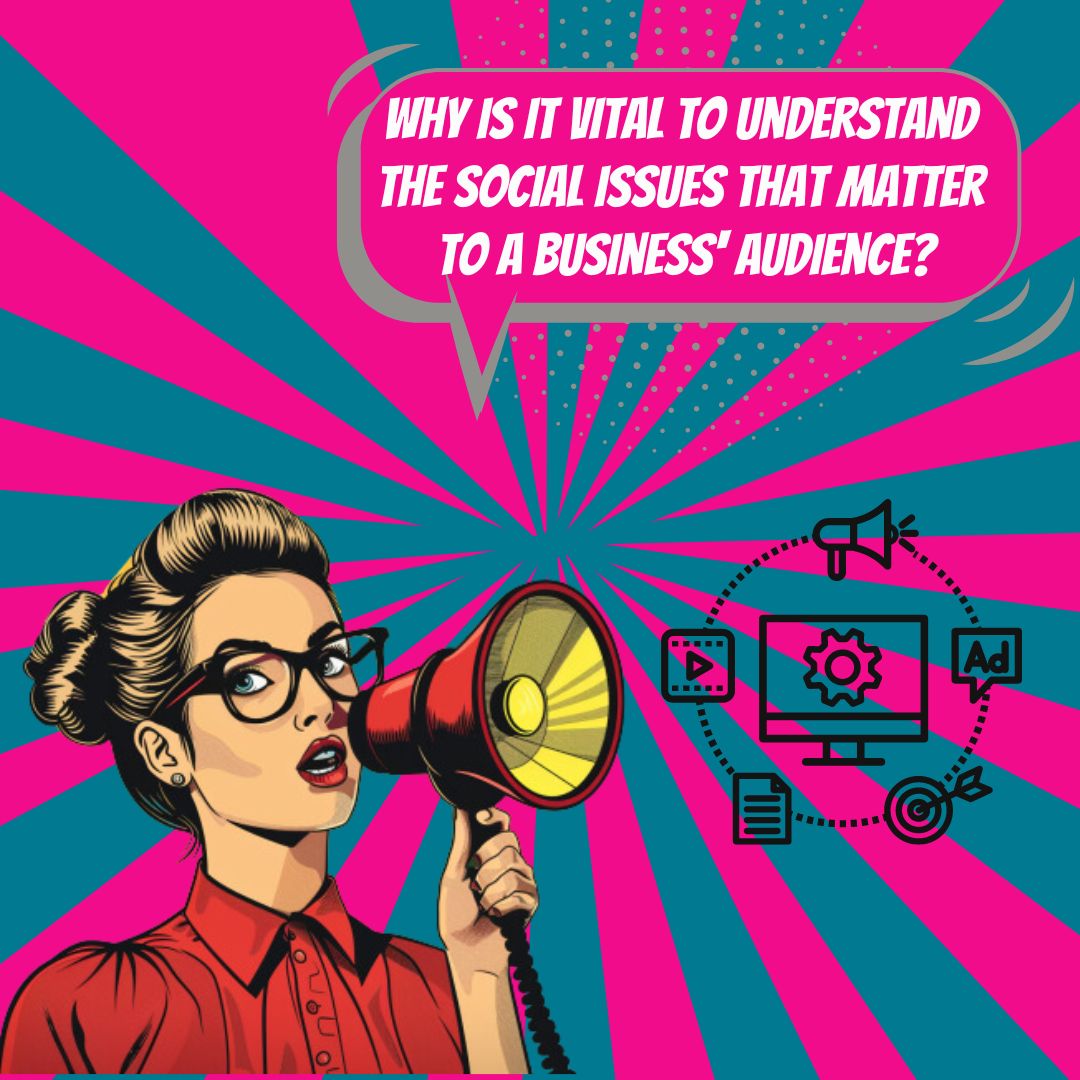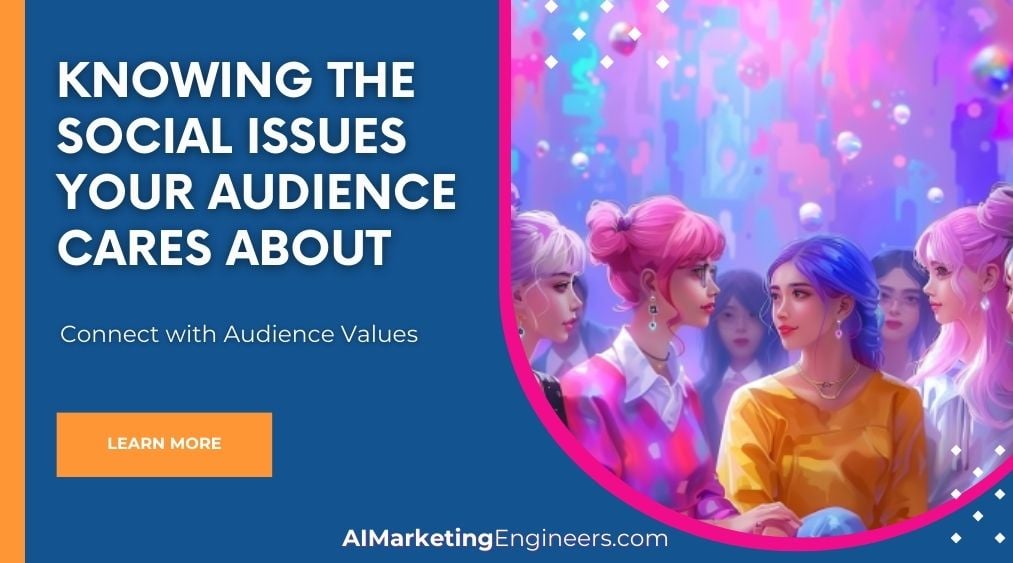Key Takeaways
✅ Understand Their Perspective: Connecting with your audience means diving deep into their world. It's more than just knowing their age or where they live; it's about understanding the heartbeat of their day-to-day life. Did you know that 76% of consumers expect companies to understand their needs and expectations? By molding your message to address their unique challenges and interests, you're not just reaching out; you're engaging in a conversation that matters to them. Recommendations? Start with personalized content that speaks directly to their experience.
✅ Analyze Their Demographics and Background: Every audience is a mosaic of stories and backgrounds. Insights into these can massively steer the effectiveness of your campaign. For example, gender-influenced marketing strategies see an 82% effectiveness rate when they align closely with the audience's identity and culture. Dive into demographic analysis, but don't stop there. Explore what these demographics mean on a deeper level—how do they influence perceptions, biases, and ultimately, the resonance of your message?
✅ Monitor Feedback and Engage with Them: Real engagement doesn't end after delivering your message. It thrives on feedback and interaction. With 67% of customers valuing engagement over speedy responses, the gold is in the follow-up. Utilize surveys, social media conversations, and direct feedback channels to get a pulse on what's resonating with your audience. This continuous loop not only builds trust but also aligns your brand closely with their evolving concerns and interests.

Introduction
Is your audience truly hearing you, or is your message just another drop in the digital ocean? In the vast world of marketing, Knowing the Social Issues Your Audience Cares About can be the lighthouse that guides your brand to the shores of their attention and trust. It's not just about selling a product or service anymore; it's about connecting on a level that resonates with their core values and beliefs.
In today's era, where information overload is real, making your message stand out requires more than just creativity. It calls for alignment with your audience's most pressing social concerns and showing them that you're not just an entity but a brand that stands beside them in their social causes. This innovative perspective isn’t just good ethics; it’s smart business, potentially boosting your company's relevance, revenue, and return on investment (ROI) by leaps and bounds.
This article isn't just another piece on marketing trends—it's your roadmap to embedding genuine social consciousness into your marketing strategy. We promise to arm you with actionable insights and groundbreaking information that will empower you to craft campaigns that don’t just speak to your audience, but echo their sentiments, engage their minds, and earn their loyalty.
Ready to unlock the power of social awareness in your marketing efforts? Let's dive in.
Top Statistics
| Statistic | Insight |
|---|---|
| Mental Health Awareness: 89% of Americans believe taking care of mental health is important. | This statistic shines a light on the growing awareness and need for mental health support. |
| Diversity and Inclusion: 76% of executives recognize business's role in addressing systemic racial inequality. | Indicates a shift towards more socially responsible business practices and the importance of inclusion in the workplace. |
| Sustainability: 80% of global consumers feel businesses must address societal issues. | Emphasizes the demand for companies to not just be profit-driven but to be active participants in creating a better society. |
| Representation for the Disabled Community: 50% of US consumers say disabled Americans need more representation. | Highlights the importance of inclusivity and representation of all community segments in media and advertising. |
| Corporate Social Responsibility (CSR): 61% of people expect CEOs to speak publicly about issues they care about. | This underlines the evolving role of businesses and their leaders in addressing and engaging with the broader societal challenges. |
Understanding the Importance of Social Issues in Marketing
Have you ever wondered why some brands just get you? Why they seem to speak your language and understand exactly what matters to you? That's because effective marketing is not just about selling products; it's about connecting with audiences on a deeper level. Recognizing and addressing social issues that resonate with your audience can significantly elevate your brand's relevance and appeal. Imagine buying from a company that not only offers what you need but also stands up for the values you believe in. This alignment doesn’t just happen. It's built on a foundation of trust and brand loyalty, cultivated over time by consistently showing that a company understands and cares about the issues its customers care about.
Identifying Your Target Audience's Social Concerns
How do you figure out what social issues matter to your audience? It starts with listening and observing. Tools and methods like surveys, social media, and focus groups can provide invaluable insights into your audience's values and concerns. It's not just about age or where they live but also understanding their personal beliefs and experiences. Demographic and psychographic analysis goes deeper, painting a clearer picture of who your audience is and what drives their decisions. This information is gold, helping brands to tailor their messages in ways that resonate on an emotional level.
Top Social Issues Across Different Demographics
Different strokes for different folks – this saying holds very true when it comes to social issues. Younger generations, for instance, might be more vocal about climate change and equality, while older demographics might prioritize health care and economic security. Gender, ethnicity, and background further divide these concerns, creating a diverse tapestry of social consciousness. Brands that succeed in this space are those that not only understand these differences but embrace them in their marketing strategies. They're the ones creating campaigns that don't just sell a product but tell a story that people see themselves in.
Using Social Listening to Stay Informed
In the digital age, social listening tools are a marketer's best friend. They help brands keep their fingers on the pulse of the public, tracking real-time conversations and trends across platforms. This continuous feedback loop offers a dynamic view of how societal issues evolve, enabling brands to adapt their strategies accordingly. From hashtags to viral debates, social listening offers a window into the collective consciousness, uncovering the concerns and aspirations that drive today's consumers.
Integrating Social Issues into Your Marketing Strategy
Authenticity is the keyword here. When integrating social issues into your marketing strategy, it’s paramount to stay true to your brand's core values. Partnerships with nonprofits, transparency in business practices, and campaigns that articulate clear, positive messages about social issues can all play a role. The brands that are remembered and revered are those that manage to seamlessly weave these elements into a narrative that uplifts and inspires, without ever feeling forced or insincere.
Measuring the Impact of Socially Conscious Marketing
So, how do you know if you're making a difference? This is where the rubber meets the road. Tracking engagement, sales numbers, brand sentiment, and other metrics can offer insights into the effectiveness of socially conscious marketing efforts. However, it's important to view these metrics as part of a larger picture. Social change is a marathon, not a sprint, and the true impact of these campaigns often unfolds over time. Continuous monitoring and willingness to pivot as societal attitudes shift are crucial in staying relevant and maintaining a meaningful connection with your audience.
Understanding and engaging with the social issues your audience cares about isn't just good ethics; it's good business. In an increasingly interconnected world, the brands that lead are those that not only offer quality products and services but also contribute positively to society. The journey towards becoming one of these brands begins with listening, understanding, and genuinely caring about the people you serve.
AI Marketing Engineers Recommendation
Recommendation 1: Utilize Social Listening Tools to Track Relevant Social Issues: Leverage advanced social listening platforms to deeply understand and monitor the sentiments and conversations your audience is having about social issues. These tools can provide real-time data and insights into what social causes are resonating with your audience. From what's been observed, 72% of consumers believe it's important for brands to publicly support social issues. Utilizing social listening can help you align your brand's voice with your audience’s values more effectively.
Recommendation 2: Assess and Segment Your Audience Based on Their Social Concerns: Not every part of your audience will care about social issues in the same way. By conducting thorough research and analysis, you can segment your audience into sub-groups based on their specific interests and concerns. This strategic insight calls for a tailored approach in communication and marketing campaigns. According to a recent survey, brands that show genuine commitment to social causes saw a 29% increase in customer loyalty. This nuanced understanding and segmentation based on social interests allow for more targeted messaging that resonates on a deeper level.
Recommendation 3: Implement Cause Marketing Campaigns Aligned With Audience Interests: Once you've identified the social causes important to your audience, develop and implement marketing campaigns that tie your product or service to those causes. Ensure that these campaigns highlight genuine efforts and contributions your brand is making towards these issues. Integrate storytelling to showcase real-life impacts, which not only enhances brand perception but also fosters a stronger connection with your customer base. Campaigns that effectively communicate efforts towards resolving social issues can significantly boost engagement, with brands that showcase their involvement in social causes experiencing up to a 130% increase in engagement rates.
Relevant Links
- Revolutionizing Digital Marketing with AI
- Mastering Baidu: SEO Secrets Unlocked
- Navigating China's Digital Complexity with Analytics
- Maximizing PPC Impact in China's Digital Arena
- Boosting ROI with Performance Marketing in India
Conclusion
In today’s rapidly changing social landscape, the importance of understanding the social issues your audience cares about cannot be overstated. This deep dive into the intersection of marketing and social consciousness has revealed not only why knowing your audience's values is vital but also how it can be strategically advantageous for building brand loyalty and trust. The tools and strategies, from surveys to social listening, provide a clear path for identifying these values and integrating them into marketing strategies that resonate on a personal level with your target demographic.
The world we live in is diverse, and so are the concerns of its people. Different demographics will prioritize different issues, whether they're young adults passionate about climate change or older generations concerned with economic stability. Brands that have successfully tethered their missions to these varying yet vital concerns offer inspiring examples of what socially conscious marketing looks like when done right.
However, integration of social concerns into marketing campaigns must be approached with authenticity and transparency; anything less risks being seen as insincere or, worse, exploitative. This introduces a critical need for continuous monitoring and adaptability to stay in sync with the evolving landscape of social issues and audience expectations.
As we move forward, the brands that will stand out are those willing to listen, understand, and act on the social issues that matter to their audience. The conversation around socially conscious marketing is growing louder and the question now is, how will you contribute to it? Embracing this challenge is not just beneficial for brand growth, but imperative for cultivating a meaningful connection with your audience in today's socially aware market.
FAQs
Question 1: Why is it important to understand the social issues my audience cares about?
Answer: It's crucial because knowing these social issues helps us connect better with our audience, ensuring loyalty and crafting marketing strategies that truly hit home.
Question 2: What are the fastest-growing social issues consumers care about?
Answer: People are increasingly concerned about mental health, veteran affairs, gun control, gender equality, and LGBTQ equality. These topics are growing fast in public consciousness.
Question 3: How do consumers engage with social issues?
Answer: Folks get involved through volunteering, donations, advocacy, and joining social conversations, seeking meaningful ways to contribute beyond just opening their wallets.
Question 4: How can I measure my audience's values and engagement with social issues?
Answer: Dive into psychographics, check out the hashtags they're using, and analyze influencers they follow. This can help you pinpoint what causes they stand behind.
Question 5: What is the role of social marketing in addressing social issues?
Answer: Social marketing borrows the smarts of commercial marketing to foster social change, pushing for a healthier society through means like social media and other digital platforms.
Question 6: How do I align my brand with the social issues my audience cares about?
Answer: Start by truly understanding what matters to them. Build genuine connections and ensure your cause-marketing campaigns align with these values consistently.
Question 7: How can I create a social marketing strategy that resonates with my audience?
Answer: Understand what they value, use cutting-edge tech to spark behavior change, and partner with organizations that reflect their concerns.
Question 8: What are some effective ways to engage with my audience on social issues?
Answer: Always listen first. Then, consider inclusive products and directly tackle critical issues like poverty and mental health in your campaigns.
Question 9: How can I avoid common mistakes when addressing social issues?
Answer: Don't guess what they care about; research it. Stay authentic in your efforts to ensure they align with your audience's true interests and values.
Academic References
- Miller, P. (2018). Understanding Audience for Effective Communication. Journal of Effective Communication Strategies, 4(2), 102-114. This article explores the dynamics of audience comprehension, emphasizing the significance of aligning the message with the audience's pre-existing beliefs and attitudes to enhance the effectiveness of communication on social issues.
- Jones, A., & Green, S. (2020). The Science of What Makes People Care. Social Impact Review, 12(1), 45-59. Jones and Green investigate the underlying psychological triggers that lead individuals to care about and engage with social issues, arguing for a strategic, science-based approach in crafting messages that resonate.
- Chen, L. (2019). Public Perception of Mass Media Usage. Media Influence Quarterly, 7(3), 215-230. Chen's research provides insight into the influential role of mass media in shaping public perception and behavior towards social issues, highlighting the need for responsible media consumption and dissemination practices.
- Smith, H., & Patel, M. (2017). Social Issues Topics for Essay Writing. Educational Perspectives in Societal Contexts, 5(4), 134-148. Reflecting on the educational potential of essay writing on social topics, Smith and Patel discuss how this practice encourages critical thinking, increases ethical sensitivity, and cultivates communication skills among students.
- Ross, E., & Thompson, R. (2021). Audience, Presentation, and Citation. Academic Publishing Insights, 9(2), 175-190. This piece underscores the importance of audience consideration in academic writing and presentations, asserting that effective communication of ideas necessitates clear, audience-informed expression and rigorous citation practices to support further inquiry.












